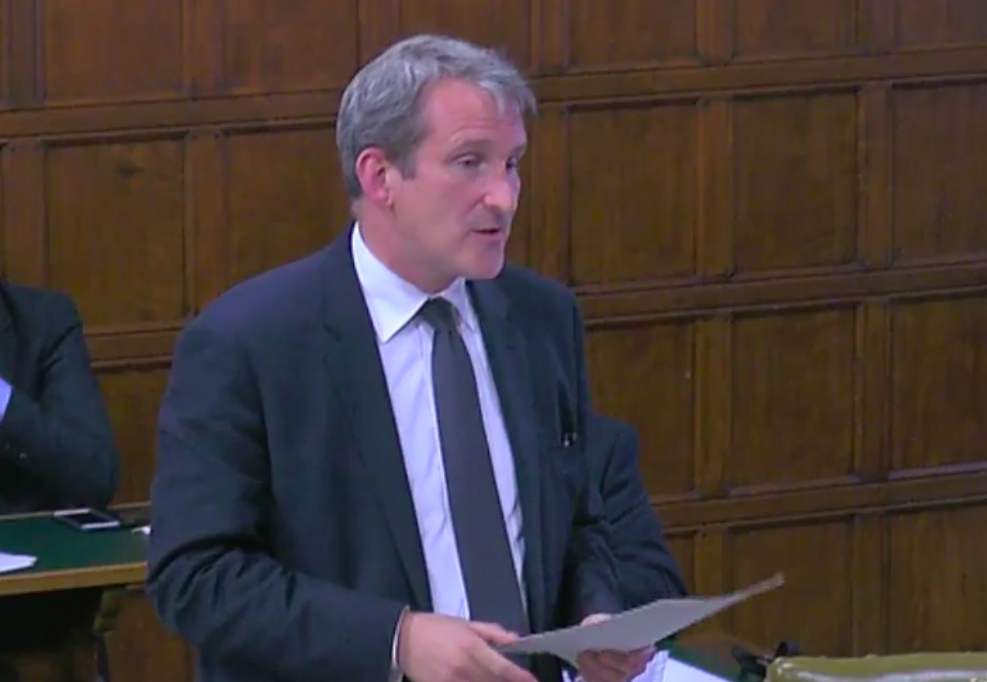Your support helps us to tell the story
This election is still a dead heat, according to most polls. In a fight with such wafer-thin margins, we need reporters on the ground talking to the people Trump and Harris are courting. Your support allows us to keep sending journalists to the story.
The Independent is trusted by 27 million Americans from across the entire political spectrum every month. Unlike many other quality news outlets, we choose not to lock you out of our reporting and analysis with paywalls. But quality journalism must still be paid for.
Help us keep bring these critical stories to light. Your support makes all the difference.
The Government has rejected a plan to bring in a so-called “universal basic income”, arguing that the policy would be too expensive and not effective.
Some politicians and campaigners have called for the introduction of a flat-rate universal benefit paid to everyone whether they were in work or not. They argue that it would incentivise work, simplify the welfare system and reduce in-work poverty, among a varity of advantages.
A wide variety of related proposals have been put forward, with some proponents saying existing all benefits should be rolled into a UBI while others have suggested it should be paid on top of existing payments.
But in a parliamentary debate on Wednesday afternoon Conservative minister at the Department for Work and Pensions Damian Hinds said the proposal was not workable.
“Even the most modest of universal basic income systems would necessitate higher taxes. At the same time it would cause a significant decrease in the motivation to work amongst citizens with unforeseen consequences for the national economy,” he told the Westminster Hall debate on the issue.
“While at first glance a UBI might appear desirable, any practical implementation will invariably be unaffordable. Because it doesn’t take into account individual needs properly, it will markedly increase inequality.
Mr Hinds defended the Government’s current beleaguered welfare programme, telling the assembled MPs: “Universal Credit is the right system for the United Kingdom.
“This is a responsible government that implemented a system that encourages work, supports the most vulnerable and is affordable.”

The debate was called in Parliament by Scottish National Party MP for Inverclyde, Ronnie Cowan. The SNP is examining the prospect of a basic income as a potential social security system in an independent Scotland.
Mr Cowan likened the proposal to a major national project such the Apollo programme.
“The money is there – it's just a question of which box you put it into,” he said.
Green party leader Caroline Lucas, who has long advocated a basic income, said the existing social security system was “no longer fit for purpose” and “almost seems designed to humiliate those who need help the most”.
She said the policy could be a viable alternative and that more research should be done into it.
Labour’s shadow chancellor John McDonnell has previously said a basic income should be looked at and that Labour’s 2020 manifesto would likely include experiments on the proposal.
Debbie Abrahams, the party’s work and pensions secretary, was present at the debate on Wednesday, said she was “open minded” about the policy.
“I want to see the evidence, I think it is very early days yet. In particular we know the social security system isn't delivering for people in work in low incomes,” she said.
Experiments on basic income are being conducted around the world, including in Finland and the Dutch city of Utrecht.
In Britain, the RSA think-tank has proposed an ambitious basic income system to replace the welfare system. The Fabian Society has meanwhile proposed a basic income-like payment to complement existing benefits.
A poll reported by the Independent in May found that two thirds of the British public look favourably on the idea of a universal basic income. Previous polling has shown a more mixed picture, however.
Subscribe to Independent Premium to bookmark this article
Want to bookmark your favourite articles and stories to read or reference later? Start your Independent Premium subscription today.

Join our commenting forum
Join thought-provoking conversations, follow other Independent readers and see their replies
Comments